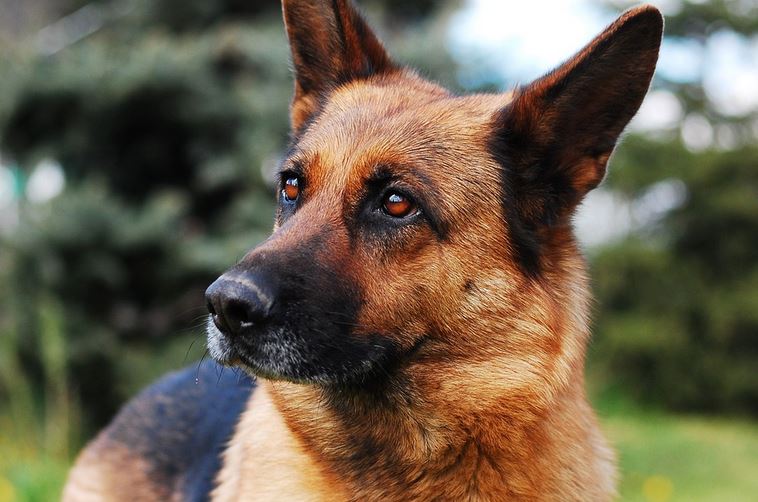When you are ready for some type of training for your German shepherd, you should understand the breed first. By researching a little bit into the type of dog you have, you can gain great insight into training a German Shepherd.
The German shepherd breed was cultivated in the nineteenth century. This dog is versatile and adaptable in a variety of situation. The German shepherd is known as a hard worker and is a faithful companion to its master. In fact, because of their dedication, they were the first breed to be used when training assistance dogs for the blind. Given its versatility, the German shepherd is one of the most popular breeds in the world.
Your shepherd is highly intelligent and is noted for its endurance and fortitude. He is a majestic looking animal who is hardy, curious and has been known to have boundless energy. Some people describe their own shepherds as a quivering mass of excitement. The reason for this is because German Shepherds need a task. They are hard workers and they love to be accomplishing something. They are also highly social creatures who need the love and interaction of their families – both human and canine. Your dog will likely be very happy in an environment where he has a job to do and is surrounded by company.
If you are laid back and not physically active, perhaps a German shepherd is not the right dog breed for you. They have a strong herding and rescue instinct and need an owner who is up to tackle the challenges of training an exuberant dog. Just remember that the key to training your German shepherd is that he likes to be useful and needs a task.
When it comes to a German shepherd, you should introduce him to other people and animals at an early age, specifically when you acquire him as a puppy. They need heavy social interaction to become accustomed to other people. This is because they are, by nature, wary of strangers. If they are not introduced early, you will have a harder time training him.
Be aware that oppressive and callous training methods are not the way to get your German shepherd to respond. Rather, you must be fair and consistent with your approach. Be firm and always reward positive behavior. Remember, they are happiest when you give them a job. So once you have successfully introduced obedience training and commands, you might look into training him to be a guide dog or a therapy dog.
Make sure that if you decide to raise a German shepherd that you have a large yard for him to romp in. If you live in an apartment, be prepared to exercise him often. Either way, do invest in a leash and some toys. Take to a park and let him play and exercise. They need lots of attention and room to run. Involve every member of the family in his training and play time. Your dog will love the interaction and will thrive under this type of care.
